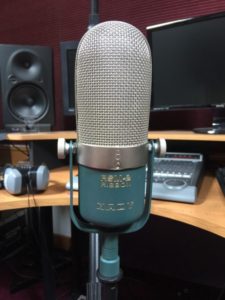As a leading book publicist for over 25 years, I have booked my clients on literally thousands of radio interviews. Today, I know one thing for sure: radio sells books. First, however, an author must be ready and able to maximize the opportunity. Whether a “phoner” or in-studio interview, I ask my clients to use these 27 foolproof tips.

Interview Tips for Book Authors
- Be clear on the exact interview date, time, and length.
- Take the length to heart as you plan and rehearse. A three-minute interview is very different than a half-hour interview, particularly pertaining to pace.
- Study the show or network’s listening audience and the on-air personality of the host.
- Revisit the press release or pitch that led to the booking. You can also provide a Q&A document to the host prior to the interview. (One of my clients swears by them.)
- Know your main objectives for the interview — what you most want to accomplish.
- Prepare your big idea and three key messages.
- Practice. Practice. Practice. (Comic legend Jack Benny claimed his best ad-libs were the ones he rehearsed the most.)
- Create a distraction-free environment. Close any windows or doors, quiet all your devices, and make sure those close by know you cannot be interrupted.
- Use a landline if at all possible. (No speakerphone or headset!) If you must use a cell phone, stay in one spot with a strong signal.
- Warm up your vocal cords before you go on the air. You don’t want to mumble or stumble right off the bat.
- Have plenty of water nearby. (Dry mouth can turn a radio interview into a disaster.)
- Smile. It’ll make you feel happier and more in control or confident.
- Steer clear of the classic interview killers: giving one- or two-word responses; rambling incessantly; using jargon; or overselling your book. Also avoid using speech fillers — superfluous and distracting sounds or words, such as “um” and “you know.”
- A person’s name is music to his ears. Memorize the host’s name and use it throughout the interview.
- Remember an interview is a conversation. Don’t perform — communicate. You’ll be more natural using your usual relaxed language.
- Listen carefully and respond to the question being asked. Never answer a question other than the one you were asked in an effort to promote yourself.
- Don’t assume the host understands your technical expertise. At the same time, don’t be patronizing.
- Be sure not to bury the lead. Use an “inverted pyramid” format — conclusion first.
- Offer your ideas in sound bites — verbal bullet points that are crisp and clear. You’ll make the host and listeners’ jobs easy.
- If you flub a response, casually correct yourself and keep going. What you perceive as a gaffe, most listeners won’t even notice.
- Make your messages practical and actionable, not academic or abstract. Bring ideas to life with real-world stories or statistics.
- Tie your work to hot topics — breaking news, emerging issues or trends, and notable current events.
- Challenge conventional wisdom. Have a contrary or counter-intuitive viewpoint or debunk popular myths.
- Stay fresh and fervent. It’s not the first time you’ve discussed your ideas, but it is the first time your listeners have heard them.
- Be prepared for negative comments and, by all means, avoid becoming argumentative or defensive. (You won’t win a fight.)
- Debrief after each interview. Ask yourself, “What specifically did I do well?” and“What opportunities did I miss — and why?”
- Send a handwritten or e-mailed “thanks” to the host. You’ll definitely stand out.
Finally, have fun and enjoy yourself. It’s one more foolproof way to max your radio interviews — and sell more books.
